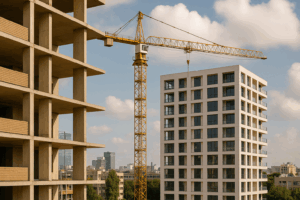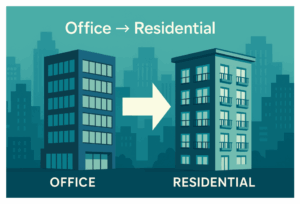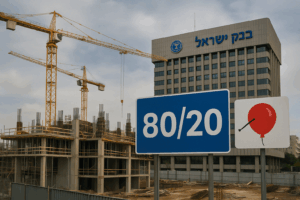Introduction
The influx of Jewish investors from abroad into Israel’s real estate market, particularly after periods of conflict, has been a significant phenomenon with profound effects on housing prices and the broader economy. This trend is driven by a combination of emotional ties to the homeland and the strategic view of Israel as a safe investment haven. These investors often seek to purchase apartments either for personal use or as investment properties, contributing to the dynamic shifts in the housing market landscape.
The involvement of diaspora investors in Israel’s real estate sector is not new, yet its intensity increases notably after geopolitical events, highlighting the unique interplay between global Jewish solidarity and local economic trends. This analysis explores how this influx of capital affects housing prices, the local population’s access to housing, and the broader implications for Israel’s economy and society.
Factors Driving Jewish Investment in Israeli Real Estate
The attraction of Jewish investors to the Israeli real estate market is multifaceted, rooted in both emotional and economic considerations. For many, purchasing property in Israel is seen as a tangible connection to their cultural and religious heritage, a sentiment that often strengthens in the aftermath of conflict or during periods of national significance. Economically, Israel’s real estate market is perceived as resilient, offering stability and growth potential amidst global uncertainties. These factors combined make Israel an appealing destination for Jewish investors worldwide, seeking both emotional fulfillment and financial security.
Effects on Housing Prices
The substantial demand from foreign Jewish investors has a direct impact on housing prices in Israel, particularly in cities with high historical, cultural, or strategic significance, such as Jerusalem, Tel Aviv, and Haifa. This demand can lead to price increases, making it more challenging for local residents to afford housing. The competition for prime properties in desirable locations often results in bidding wars, further driving up prices and contributing to the overall inflation within the housing market.
Local Population and Housing Accessibility
The escalation of housing prices due to foreign investment presents significant challenges for the local Israeli population, especially first-time homebuyers and those in lower income brackets. The disparity between the purchasing power of foreign investors and local residents can widen the housing affordability gap, leading to social and economic tensions. This situation necessitates government intervention to ensure that the housing market remains accessible to Israelis, balancing the benefits of foreign investment with the needs of the local population.
Government Policies and Market Regulation
In response to these challenges, the Israeli government has implemented various policies aimed at regulating the real estate market to maintain a balance between encouraging foreign investment and protecting the interests of local residents. These measures include taxes on multiple property ownerships, incentives for developers to build more affordable housing units, and restrictions on foreign buyers in certain areas. These policies are designed to cool down the overheated market segments and ensure that the benefits of foreign investment are distributed more equitably across society.
Conclusion
The influx of Jewish investors from abroad has undeniably contributed to the dynamism of Israel’s real estate market, driving up housing prices and presenting challenges for local affordability. While this trend underscores the strong diaspora connection to Israel, it also highlights the need for careful market regulation to ensure that the housing market serves both the local population and foreign investors effectively. Balancing these interests is crucial for maintaining social cohesion and economic stability in Israel, ensuring that the real estate market remains a source of growth and prosperity for all stakeholders.
FAQs
How does foreign investment in Israeli real estate compare to local investment?
Foreign investment, particularly from Jewish diaspora communities, often focuses on high-end and luxury properties, whereas local investment is more diversified across different market segments.
What are the primary locations of interest for foreign Jewish investors in Israel?
Key areas include Jerusalem, Tel Aviv, Netanya, and Herzliya, known for their cultural, historical, and strategic importance, as well as their appeal to international buyers.
How does the Israeli government regulate foreign investment in real estate?
The government employs a range of policies, including taxation measures and incentives, to manage the impact of foreign investment and ensure housing affordability for locals.
What impact does foreign investment have on rental markets in Israel?
Increased foreign investment can lead to higher rental prices, especially in cities and neighborhoods popular with overseas buyers, impacting affordability for local renters.




